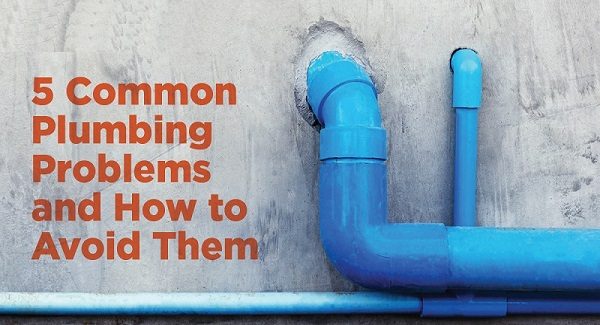
When it comes to plumbing, choosing the right pipes is critical for ensuring that the system is efficient, reliable, and long-lasting. With so many types of plumbing pipes available on the market, it can be difficult to determine which one is the best fit for your needs.
Each type of pipe comes with its own set of advantages and disadvantages, including cost, durability, ease of installation for Plumbers in Berwick, and resistance to corrosion and leaks.
So, in this article, we discuss the pros and cons of different types of plumbing pipes to help you make an informed decision. We will cover the most popular types of pipes as well as some newer options.
By understanding the characteristics of each pipe material and how it performs under different conditions, you and your plumber in Berwick can choose the best pipe for your plumbing needs.
So, let’s begin!
1. PVC Pipes
PVC pipes are among the most commonly used plumbing pipes by plumbers in Berwick. PVC, which stands for polyvinyl chloride, is a versatile and durable plastic material that is resistant to corrosion and chemicals.
PVC pipes are available in different sizes, ranging from small diameter pipes used for drainage systems to large diameter pipes used for water mains.
One of the main advantages of PVC pipes is their resistance to corrosion and chemical degradation, making them ideal for use in harsh or corrosive environments.
Pros:
- Affordable
- Resistant to corrosion and chemicals
- Easy installation for plumbers in Berwick
- Non-conductive so safe to use in electrical installations.
- Have smooth inner surfaces that reduce the buildup of mineral deposits, preventing clogs and increasing water flow.
Cons:
- Not suitable for hot water systems
- Can crack under high pressure
- Can leach chemicals into water in some cases
2. Copper Pipes
Copper pipes are a popular choice for plumbing because they are durable and long-lasting. They are also resistant to corrosion, making them ideal for use in both hot and cold water supply systems.
Copper is a great conductor of heat, which means that hot water can be transported without losing heat, which makes it energy efficient. Additionally, copper pipes are relatively easy to install and can be bent to fit around obstacles or to fit into tight spaces.
However, some people are allergic to copper, which means that they should avoid contact with copper pipes.
Overall, copper pipes are a great choice for plumbing, but the higher cost may make them less attractive for some homeowners.
Pros:
- Durable and long-lasting
- Resistant to corrosion
- Can be soldered for a leak-free connection
Cons:
- More expensive than other types of pipes
- Prone to freezing and bursting in cold temperatures
- Can corrode when the water is too acidic
3. PEX Pipes
PEX (cross-linked polyethene) pipes are a newer type of plumbing pipe that gained popularity in recent years. They are made of a flexible plastic material that is durable, resistant to corrosion, and can withstand high temperatures and pressures.
PEX pipes are also easy to install, as they can bend and curve to fit around corners and obstacles without requiring additional fittings.
One of the main advantages of PEX pipes is that they are less prone to freezing and bursting compared to other types of pipes. They are also quieter than metal pipes, as they do not expand and contract as much when hot water is run through them.
However, PEX pipes may not be suitable for all types of plumbing applications, as plumbers in Berwick do not recommend for outdoor use or applications where they will be exposed to UV light.
Pros:
- Flexible and easy installation for plumbers in Berwick
- Resistant to corrosion
- Suits both cold and hot water systems
Cons:
- UV rays can damage the pipes
- May not be suitable for water with high chlorine content
- Cannot be recycled
4. Galvanized Pipes
Galvanized steel pipes have been coated with zinc to prevent rust and corrosion. They were commonly used in the past but have since been largely replaced by other types of pipes. Galvanized pipes can be heavy, difficult to work with, and prone to rusting.
Due to several drawbacks, plumbers in Berwick no longer recommend galvanized pipes for use in plumbing systems and have largely been replaced by other materials such as PVC, copper, and PEX.
Pros:
- Resistant to corrosion
- Can withstand high temperatures
Cons:
- Prone to rusting and corrosion over time
- Heavy and difficult to work with
- Can leach lead into the water in some cases
5. Cast Iron Pipes
Cast iron pipes were commonly used for plumbing in older homes. They are durable and long-lasting but have largely been replaced by PVC and other types of pipes. Cast iron pipes can be heavy and difficult to work with, but they are resistant to corrosion and can withstand high pressure.
Pros:
- Durable and long-lasting
- Resistant to corrosion
- Can withstand high pressure
Cons:
- Heavy and difficult to work with
- More expensive than other types of pipes
- Prone to rusting and corrosion over time
Final Thoughts
The type of plumbing pipe you choose will depend on several factors, including your budget, the intended use of the pipe, and your personal preferences.
PVC pipes are a popular choice for their affordability and ease of installation, while copper pipes are durable and long-lasting. PEX pipes are a newer alternative that is flexible and easy to work with. Galvanized pipes and cast iron pipes are less commonly used due to their disadvantages.
It’s important to do your research and consult with a professional Plumber in Narre Warren before making a decision.
You can take this further with Doyle Plumbing Group. Their experts and services will be very much capable of guiding you well through your plumbing pursuit.


